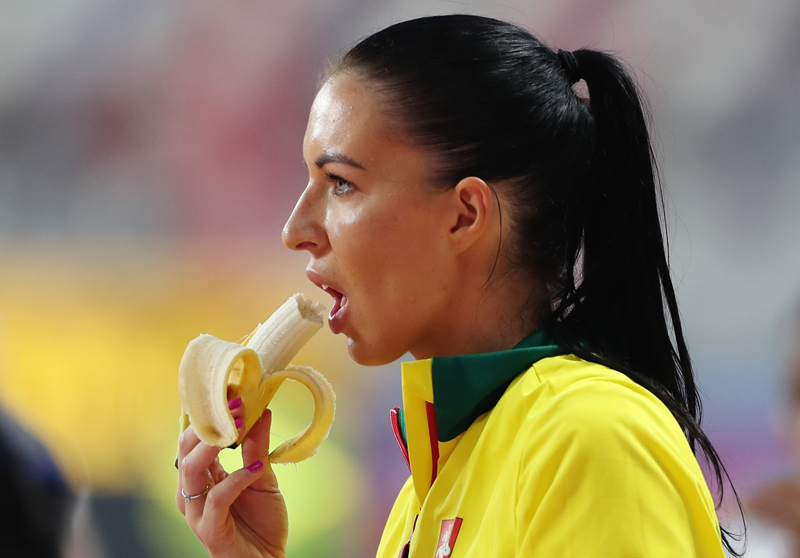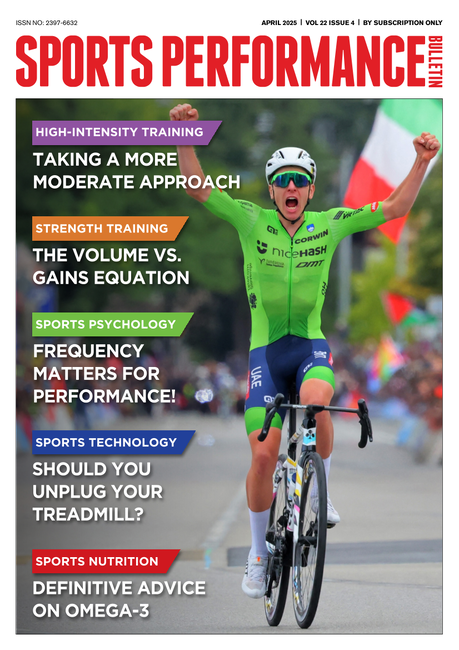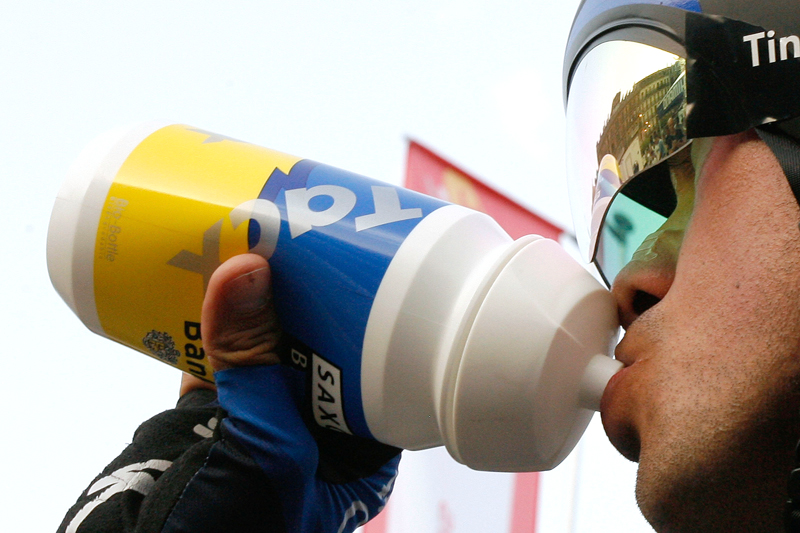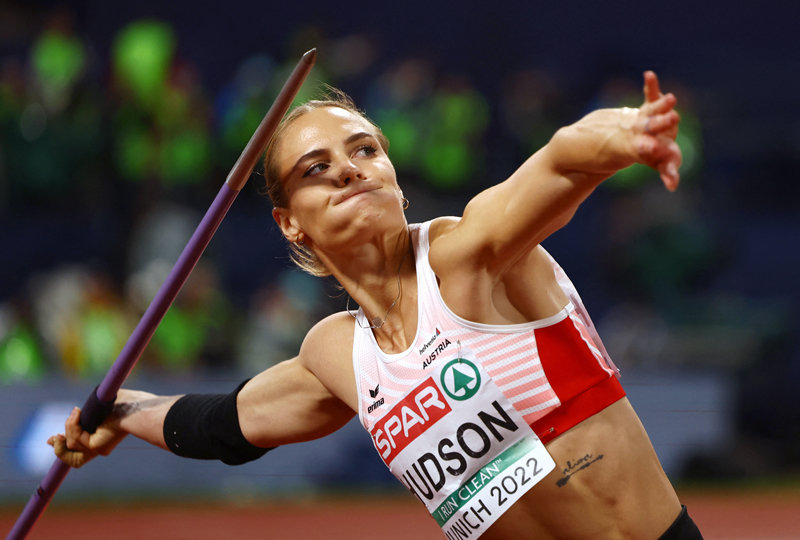Fueling on the move: pros and cons of going natural

Assuming your diet is generally healthy and nutrient rich, and that you’re drinking ample fluid, it’s no exaggeration to say that when it comes to endurance performance, it’s carbohydrate nutrition that can make the difference between merely adequate and truly excellent performance. This is because carbohydrate can be considered as the body’s 5-star fuel. Consuming the right amount of the right type of carbohydrate at the right time therefore can dramatically extend endurance and delay fatigue.
Brief carbohydrate history
Until the 1980s, the nutritional advice on offer to endurance athletes was pretty basic, and not based on data from scientific studies. Indeed, many endurance athletes still believed that high-protein meals such as steak and eggs were ideal pre-race nutrition! In particular, the critical importance of carbohydrate for endurance performance was not really appreciated. However, in the late 1980s, a trickle of studies on endurance performance began to demonstrate why carbohydrate is so importance for endurance performance. By the early 1990s, this trickle of carbohydrate research became a torrent, which led to a breakthrough in understanding the importance of carbohydrate for endurance performance.
The key finding was that consuming carbohydrate during exercise can help offset the effects of glycogen (stored muscle carbohydrate used during exercise) depletion by providing working muscles with another source of carbohydrate. In particular, scientists discovered that(1-9):
· Carbohydrate consumed during exercise can be oxidised to produce energy in muscles at a rate of roughly 1 gram (g) per minute, supplying approximately 250kcals per hour).
· This carbohydrate can be supplied and absorbed well by drinking 600-1200mls of a solution of 4-8% (40-80g per litre of water) carbohydrate solution per hour.
· Ingested carbohydrate becomes the predominant source of carbohydrate energy late in a bout of prolonged exercise, and can delay the onset of fatigue during prolonged cycling and running as well as improving power output.
As a result, millions of runners, cyclists and other endurance athletes found that by applying these recommendations, they were able to go further and faster. They also began to understand the importance of pre-race fuelling with carbohydrate (carbohydrate loading), and post race carbohydrate for recovery. Later research carried out in the 2000s focusing on carbohydrate type found that rather than ingesting glucose-only drinks and gels, the addition of fructose to glucose in a 1:2 ratio further could further enhance carbohydrate oxidation rates by providing an additional absorption route (see this article)(10-12).
Modern carbohydrate supplementation
Fast forward to 2024, and the use of carbohydrate supplementation to improve endurance performance –either during training or competition - is now routine among athletes. These supplements consist of carbohydrate drinks, gels and bars, usually using a 2:1 glucose:fructose formulation for maximum benefits – not just to enhance performance during exercise, but often to help accelerate recovery too.
However, while the performance benefits of these products are welcome, some scientists have begun to ask whether the ingestion of large amounts of these ‘manmade’ carbohydrates is always a good thing, especially given that there are a number of natural foods that are carbohydrate-rich and rapidly digested, and have the additional benefit of supplying the body with a range of nutrients such as vitamins, minerals, fibre and phytochemical antioxidants, which can help protect health and fight inflammation(13).
Banana power
A good example of such a food is the humble banana. Once upon a time, bananas were a nutritional mainstay for endurance athletes, especially cyclists performing long rides. This is perhaps not surprising because not only are bananas an excellent source of low-fat carbohydrate, they’re easy on the tummy, easy to stash in the rear pockets and also come packaged in their own biodegradable container!
Given the rise in popularity of advanced carbohydrate formulations, it’s perhaps understandable that foods such as bananas have largely fallen out of favor with endurance athletes such as cyclists – the assumption being that bananas cannot provide the same kinds of endurance benefits as modern carbohydrate supplements. However, is this assumption correct? Maybe not according to a 2012 study conducted by researchers from the Appalachian State University in the US(14).
Research
In this study, fourteen trained cyclists completed two 75-kilometer cycling time trials during which they ingested either bananas or carbohydrate drink. Importantly, the serving sizes of the carbohydrate drinks and bananas were given to the cyclists were adjusted to ensure that whatever the cyclists were consuming, the rate of carbohydrate consumed was exactly the same – 0.2g of carbohydrate per kilo of bodyweight every 15 minutes. For an 80kg cyclist, this equates to 64 grams per hour of carbohydrate ingestion – exactly as recommended in the original carbohydrate supplementation studies.
At a later date, the trials were repeated but the groups reversed – ie those who had consumed bananas took carbohydrate drink and vice-versa. The time trial performance of the cyclists was measured, and before, during and one hour after both of the time trials, blood samples were taken and analyzed to see how the blood sugar levels varied with each type of carbohydrate consumed. There were also blood samples taken to monitor levels of markers of immunity and metabolic stress experienced by the cyclists during and after their time trials (ingesting carbohydrate during exercise is known to help prevent exercise-induced dip in immunity and combat oxidative stress).
You need to be logged in to continue reading.
Please register for limited access or take a 30-day risk-free trial of Sports Performance Bulletin to experience the full benefits of a subscription. TAKE A RISK-FREE TRIAL
TAKE A RISK-FREE TRIAL
Newsletter Sign Up
Testimonials
Dr. Alexandra Fandetti-Robin, Back & Body Chiropractic
Elspeth Cowell MSCh DpodM SRCh HCPC reg
William Hunter, Nuffield Health
Newsletter Sign Up
Coaches Testimonials
Dr. Alexandra Fandetti-Robin, Back & Body Chiropractic
Elspeth Cowell MSCh DpodM SRCh HCPC reg
William Hunter, Nuffield Health
Keep up with latest sports science research and apply it to maximize performance
Today you have the chance to join a group of athletes, and sports coaches/trainers who all have something special in common...
They use the latest research to improve performance for themselves and their clients - both athletes and sports teams - with help from global specialists in the fields of sports science, sports medicine and sports psychology.
They do this by reading Sports Performance Bulletin, an easy-to-digest but serious-minded journal dedicated to high performance sports. SPB offers a wealth of information and insight into the latest research, in an easily-accessible and understood format, along with a wealth of practical recommendations.
*includes 3 coaching manuals
Get Inspired
All the latest techniques and approaches
Sports Performance Bulletin helps dedicated endurance athletes improve their performance. Sense-checking the latest sports science research, and sourcing evidence and case studies to support findings, Sports Performance Bulletin turns proven insights into easily digestible practical advice. Supporting athletes, coaches and professionals who wish to ensure their guidance and programmes are kept right up to date and based on credible science.









